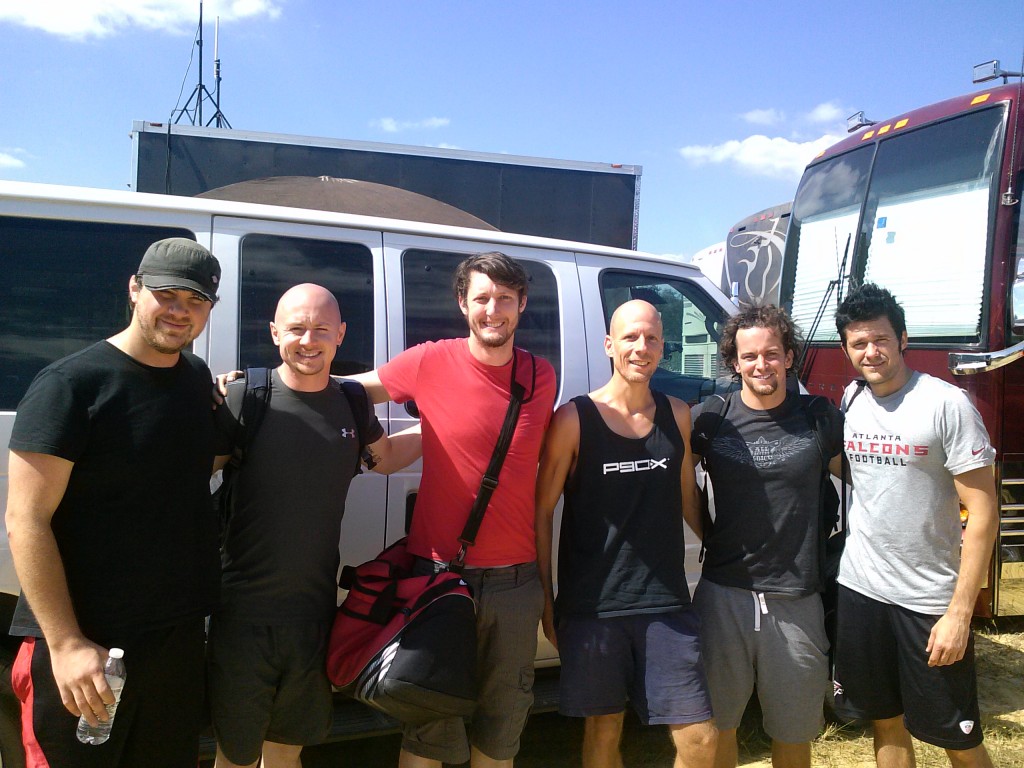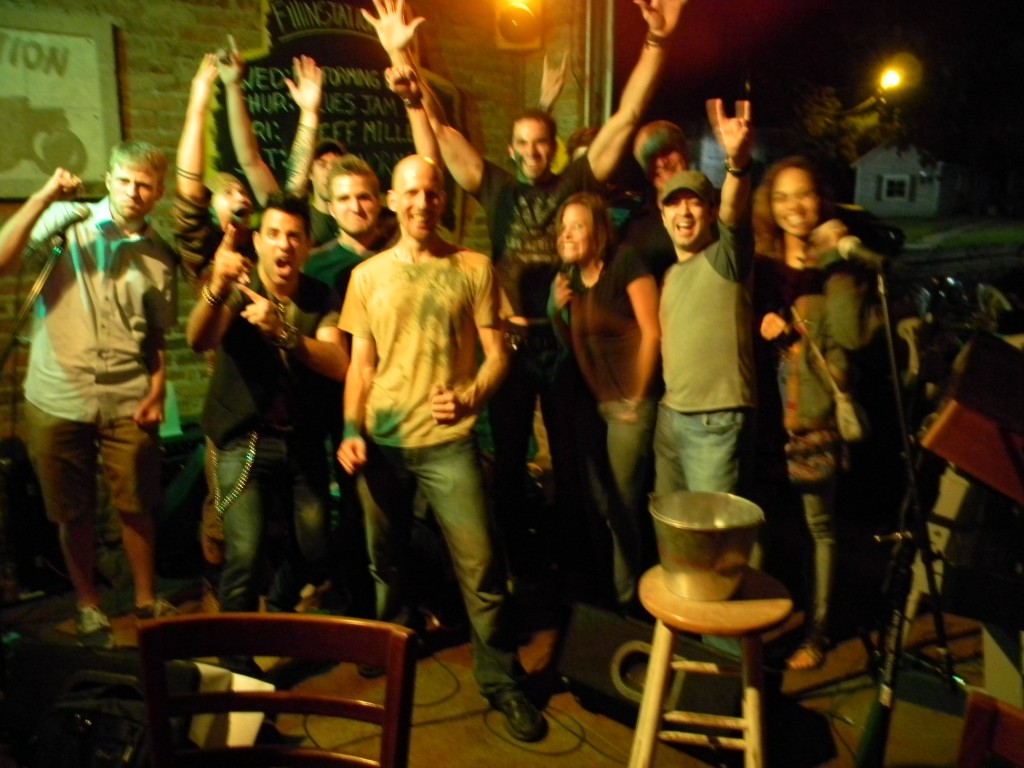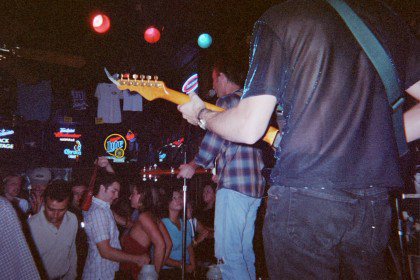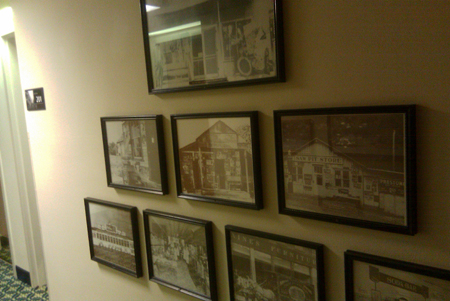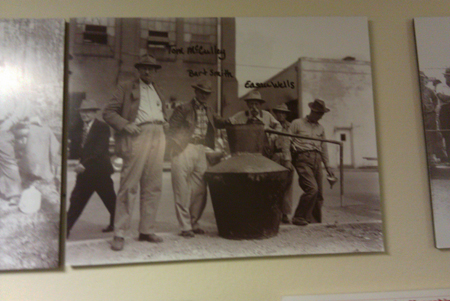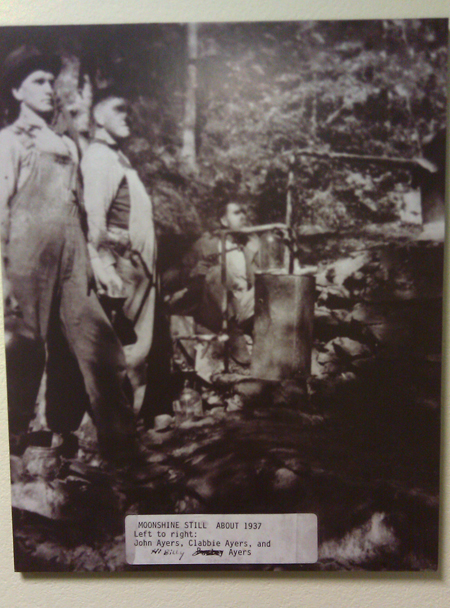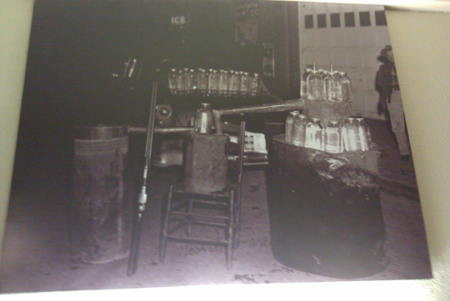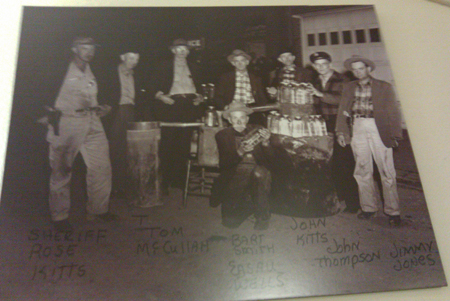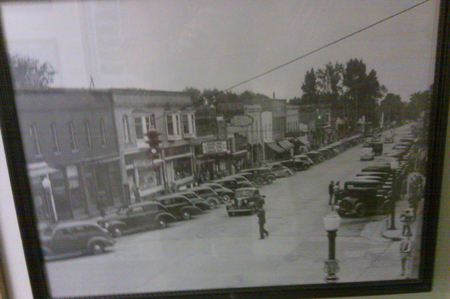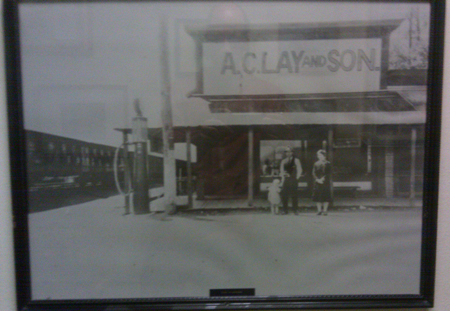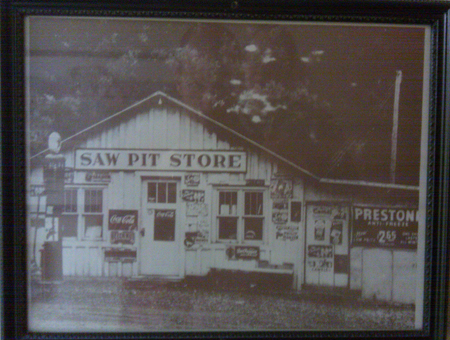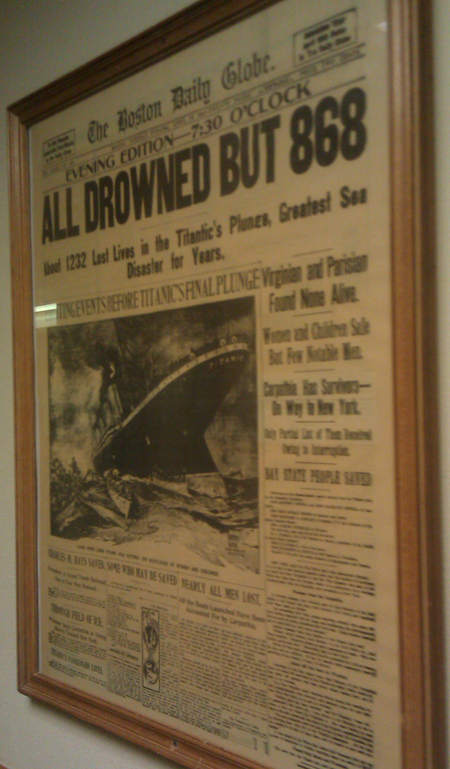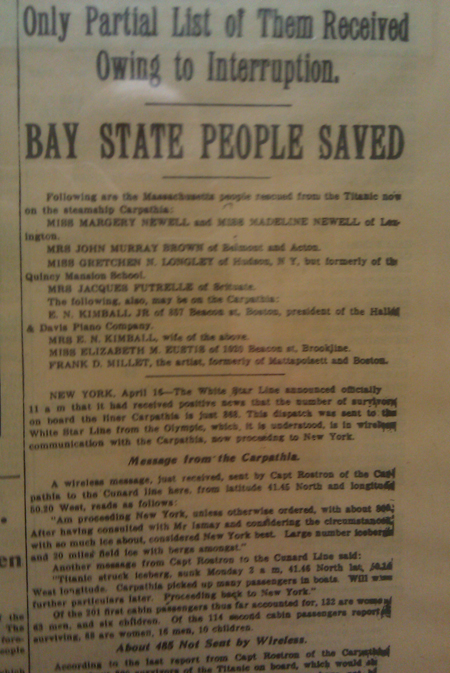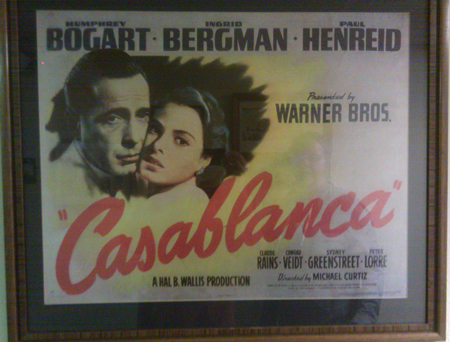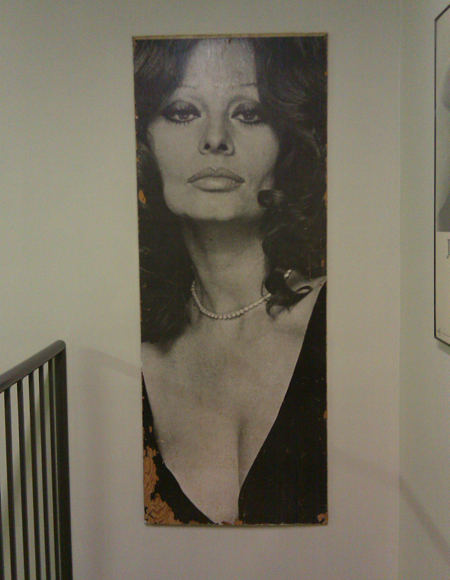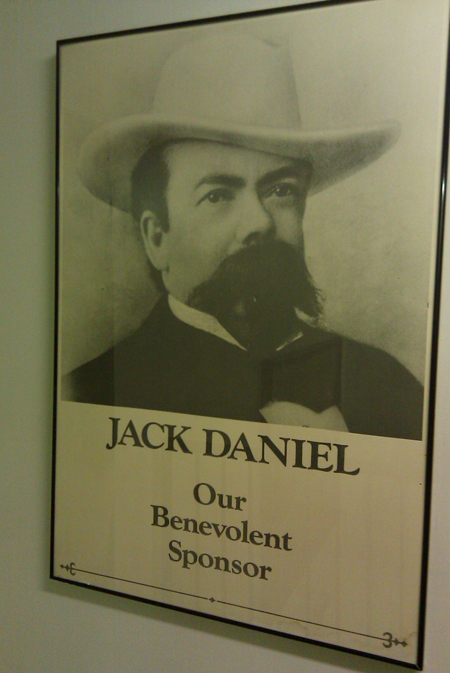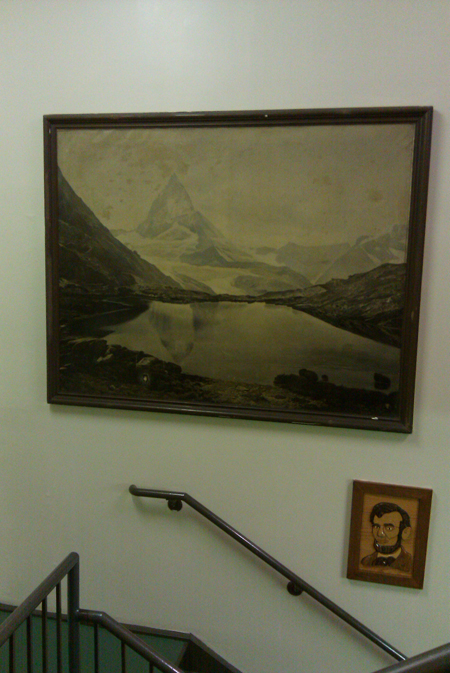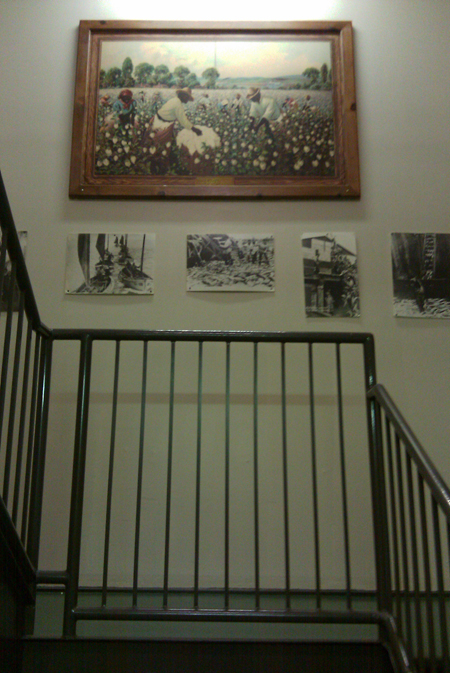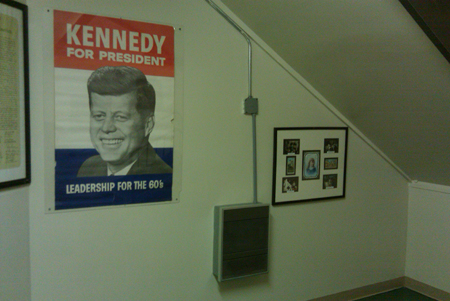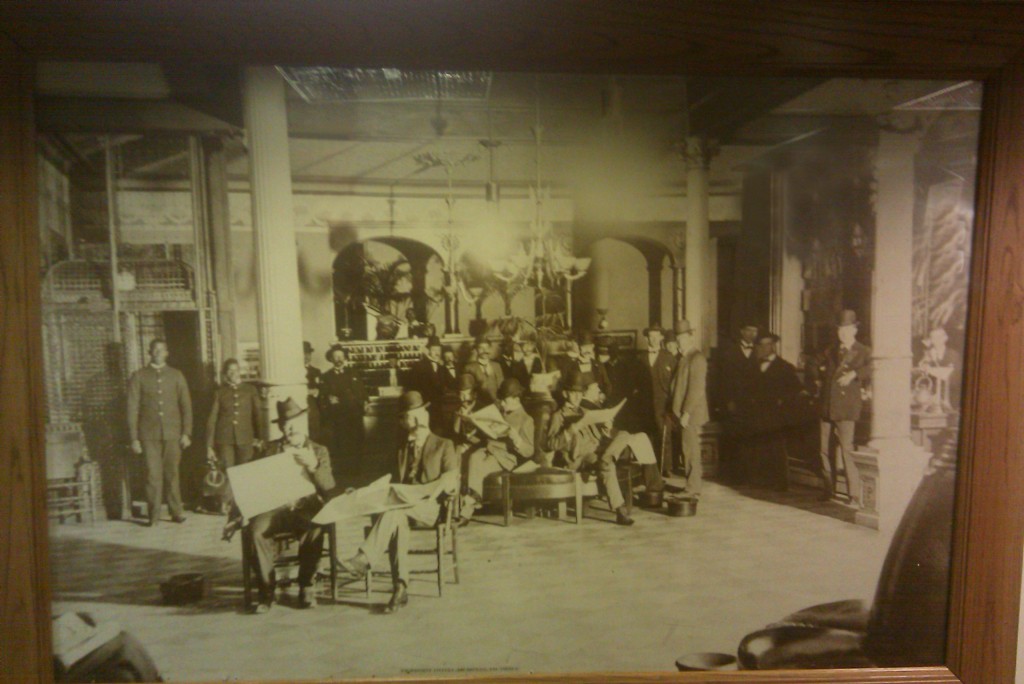Life and Life’s Problems
“Music is like ice cream!” – Remembering Mike Chapman
To say that last week was heavy is probably the biggest understatement of all time. Last week was one of the most emotional times I can remember in my adult life, I can’t even remember the last time I cried so much. When I first heard the news of the passing of my dear friend, Mike Chapman, I was deeply saddened, but I didn’t really grasp the full meaning of this for a couple more days. It wasn’t until me and Kelly arrived at Mike’s “Celebration of Life” ceremony on Friday that it fully hit me, Mike really is gone. 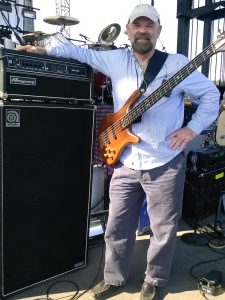
But he’s not really gone. His physical being may have left this world, but all the goodness he embodied and the huge impact that had on his family and friends remain. A part of his spirit is still here and lives within all that knew him.
I met Chap about 10 years ago, while working for country artist, Rhett Akins. We were in between bass players and our drummer at that time, Cliff Thompson said Mike would be great, if he was available. It turns out he was available, and our friendship and musical adventures began on a tour bus bound for Virginia. I had no idea on that day that he would eventually become my favorite bass player to play music with, but also one of my favorite people to be around.
Those that knew Mike knew the depths of his amazing talent on the bass guitar. Millions of people who have no idea who he is have unknowingly enjoyed his playing on countless recordings. Being a world-class studio musician and playing bass on all the Garth Brooks records (and countless others) were just one part of his amazing contributions to the world. He was also a phenomenal live musician; for he could hold down the fort like no other! My good friend, Patrick Weickenand, owner of a bar in which me and Mike performed many times, the Fillin’ Station, once said “Mike’s unreal, he never misses!”. Solid, dependable, never missing a beat – these words describe not just Mike’s bass playing, but his approach to life.
So many beautiful words were said of Mike at his celebration last week by some of his closest friends and his daughter Allison. Mike’s love for his family, friends, music, and life were as deep as the deepest ocean, his life had such meaning and purpose, and he lived it to the fullest. He was also the humblest guy you could ever meet, if he heard me (and everyone else) talking about him like this, he would have probably said something like “thanks, that’s really nice, but you don’t really have to say all that”.
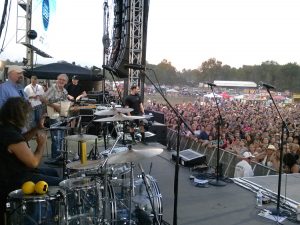 I played a lot of “big gigs” with Mike, most of the gigs with Rhett Akins and The Peach Pickers were in front of thousands of people. Some of my most memorable musical experiences were with Mike on bass backing up The Peach Pickers on the Luke Bryan Farm Tour in recent years. But hanging out with Mike on the bus, or sharing a meal or a walk, these moments were just as special.
I played a lot of “big gigs” with Mike, most of the gigs with Rhett Akins and The Peach Pickers were in front of thousands of people. Some of my most memorable musical experiences were with Mike on bass backing up The Peach Pickers on the Luke Bryan Farm Tour in recent years. But hanging out with Mike on the bus, or sharing a meal or a walk, these moments were just as special.
Over the years we also played a lot of small gigs, you know the kind, 30 or 40 people in a cozy neighborhood bar (or sometimes even five or six, three of which were 2 band wives and the bartender). My wife and I were always amazed that on many occasions he would drive an hour to do these gigs with me, for nothing other 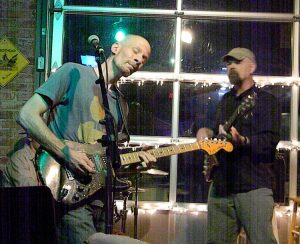 than tips and a good time. I remember him saying after one of these gigs “thanks for inviting me to the party! “, And after another “music is like ice cream!”. We really did have some magical musical moments in these little bars and I am grateful for the experiences and memories I made with him. He treated every show, no matter how big or small, with the same level of importance. He really loved to play music!
than tips and a good time. I remember him saying after one of these gigs “thanks for inviting me to the party! “, And after another “music is like ice cream!”. We really did have some magical musical moments in these little bars and I am grateful for the experiences and memories I made with him. He treated every show, no matter how big or small, with the same level of importance. He really loved to play music!
What Mike has left behind for us, aside from his musical legacy, is his legacy of love, and this was so evident at his service. One of the things I loved most about Mike was the way he would greet you with a big hug and a smile, every time! And it wasn’t just a little hug; he hugged you like he really meant it, as I believe he really did. And even if he didn’t physically hug you, he hugged you with his smile; there was so much love in his eyes. And this went on at the service, everybody was hugging everybody, it was like a great big, teary-eyed hug-athon!
In the days since that service my wife and I have talked a lot about Mike and some of the things that were said of him on that day – things like his honesty, integrity, compassion and selflessness. He never had a bad thing to say about anyone and went out of his way to help others, ideals the world can never have too much of. He generously shared his love with everyone and that might be the greatest gift anyone can give.
Over these last few days we’ve stumbled across a new mantra – “Be like Mike!”. If you’re having a bad day and life gets a little hard, hold your head up high and be like Mike. Be like Mike in all the ways that he shared his goodness in the world. Be like Mike and smile a little more, hug often, and love always. I can think of no better way to honor our friend.
Mike once said in an interview about attaining success in the music business “you’ve got to be a nice guy”. If there’s one thing I learned through my years of knowing him, being a nice guy came very naturally to Mike Chapman. I wish I could hug him one more time and play one more gig with him, but I guess that will have to wait. So if you’re listening my good friend, thanks for all the friendship, the music, and the love. And thanks for inviting us to the party!
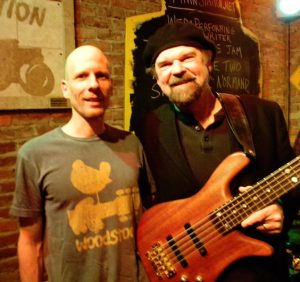
Two Years of Yoga – Part 1: the Physical Journey
This past Thanksgiving marks the second year anniversary of my yoga journey. It’s been an exciting year, lots of milestones and lots to be thankful for. At the one year mark, I decided to write a blog about my first year of yoga, so now that another year has come and gone I’d like to share how this transformational journey continues to evolve. For those of you who don’t know me, or didn’t read my first blog, I’ll start with a condensed version of how and why I got into yoga and then I’ll get into some of what I’ve learned during the second year (halfway through the writing of this blog I realized that it really wanted to be two blogs, one about the physical practice of yoga, and one about the mental and emotional benefits, so let’s start with the physical journey).
Throughout my adult life I’ve gone back and forth between two professions; music and construction. In 2011 I decided to go back into construction after many years of working as a touring musician. I was 43 years old and hadn’t worked in construction for about 15 years. Ouch, I was quickly reminded of how hard this work can be! Within a year I was having chronic shoulder and neck pain as well as relapses of tendinitis in my right arm from an old injury. Sometimes, after a few hours of work, my left shoulder would begin to hurt, the pain and stiffness spreading into my neck, ultimately limiting my range of mobility and causing intense pain. Once my shoulder and neck were “tweaked”, it might take several days to a week to subside. It was getting so bad that the condition could even be brought on by simply coughing or sneezing. I tried stretching, ibuprofen, lifting weights, but nothing worked, the condition was worsening.
Then one day a friend told me how he had used yoga to self heal an injury. I was intrigued. I began practicing with a yoga DVD (P90X Yoga) as well as putting together a few of my own short routines. I wasn’t consistent at first, but the ball was in motion. Then one day my wife, Kelly sent me a couple of YouTube video links. One was a 30 Minute Morning Yoga Class by Ali Kamenova (if you’re interested in exploring some great yoga videos, check out Ali’s YouTube channel). Almost instantly, this routine, and Ali’s style clicked with me, and soon this YouTube video had become my new best friend.
By one year into this commitment to self healing I was practicing Ali’s yoga routines almost daily, and the neck/shoulder pain and tendinitis were, for the most part, gone! Although they occasionally did show their face, the problems were minimal, and usually gone by the next day. There were a lot of other changes over that first year – a whole new sense of body awareness, breath, connectivity, improved attitude – I was stronger both physically and mentally, and had a growing sense of inner peace – all this from a 30 to 60 minute daily yoga practice at home. My first year of yoga was very exciting; self-healing my own injuries was very empowering. One of the biggest things I learned was the connection between the body, mind and breath, and I definitely felt an increased awareness of my physical and emotional state.
Figuring out what the body needs
When I first started practicing yoga, I was typically hitting the mat three times a week, occasionally 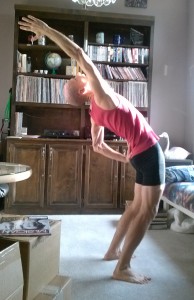 four. By the end of that first year it was almost daily, and I often found myself struggling to figure out what my body needed on a daily basis, which class to choose, what type of flow, how to alternate routines to target different parts of the body, etc. Maybe a certain area of my body was holding extra tension and required specific attention. I was also exploring how to build my day around my practice (to ensure it happened daily) and what clothing was most comfortable. Over the second year of practice, I gradually found answers to many of these questions.
four. By the end of that first year it was almost daily, and I often found myself struggling to figure out what my body needed on a daily basis, which class to choose, what type of flow, how to alternate routines to target different parts of the body, etc. Maybe a certain area of my body was holding extra tension and required specific attention. I was also exploring how to build my day around my practice (to ensure it happened daily) and what clothing was most comfortable. Over the second year of practice, I gradually found answers to many of these questions.
Creating a space for yoga
In order to practice yoga every day I believe you have to build it into your daily routine in a way that is sustainable, and this is different for everyone. I’ve learned that I don’t have the energy or focus for a challenging yoga sequence by the time I get home from work, so it’s pretty much a morning practice or nothing. For a while, I tried hitting the mat shortly after getting out of bed, and this was a struggle as my body was too stiff and I seemed to lack energy. Gradually, my schedule evolved into waking up around 5:00 AM, eating breakfast, doing a few other things around the house to kind of wake things up a bit, and then starting my practice at the last minute possible before leaving for work (allowing maximum time for digestion). On the weekends I find myself practicing much later in the morning and my body seems to like that a little better, but the compromise during the work week is essential. I think the key is to make a commitment to a daily practice, and then build the practice into your daily routine.
Types of routines:
I love a strong, moderate paced power yoga class, 50 to 60 minutes in length, with lots of warriors, backbends, twists, hip openers, and core work, and I do these as often as possible. However, sometimes my body wants something different. On some mornings I feel a little beat up from the workday before, so I might do a less intense routine that focuses on flexibility. I use these classes to take the edge off of whatever pains and tweaks I might wake up with and to prepare my body for another day of life’s abuses. Do you ever wake up feeling really tight, achy, and just really beat up from head to toe? Well even with all this yoga I still have days like that, too. On those mornings I try to do very easy, therapeutic routines, maybe 20 to 30 minutes in length with mostly seated poses. And then some days the body just wants a complete rest! Our physical state seems to fluctuate, going from higher to lower points of energy and stability, so it’s important to listen to your body; it is speaking to you and will tell you what it needs.
Staying Loose
Loosening up, tightening up, loosening up, tightening up…this seems to be a pattern in my life. I get all stretched out with a wonderful morning yoga class, and then sit in my car for an hour drive to work. Sitting in traffic sucks, and boy, will that tighten you up! Then there’s the repetitive motion of the job itself. Throughout the day, I’ll throw in a few poses, almost always right before lunch, and then again at the end of the day right before the afternoon commute. Even just a couple of forward folds and a standing side stretch can work wonders.
Making the body more efficient and workplace yoga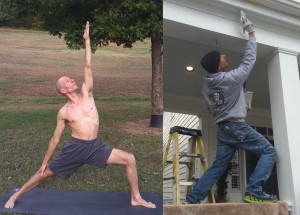
My job as a painter and drywall repairman is very physically demanding and requires a lot of sustained, awkward body positions. Working over head, crouching, kneeling, climbing up and down ladders, painting with a brush or roller for hours…did I mention sitting in traffic? No matter what you do for work; it will take its toll on the body. This is where yoga comes in. For every task that stresses the body, there’s a pose or group of poses that will counter it.
Painting and/or repairing ceilings place more stress on the neck and shoulders than almost anything else I do. Over the last two years I have greatly increased my flexibility in that region with backbends, twists, and shoulder openers. This work still takes its toll, but much less so because of my increased range of motion. Work that is low to the ground, like painting baseboards, is also quite taxing. You’ve 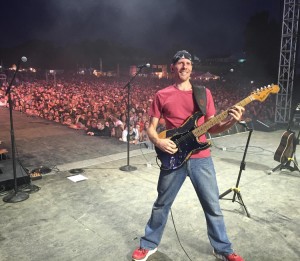 either got to sit, kneel, crouch, or lie on your side. I find myself sitting crosslegged to do a lot of this work, kneeling (with knee pads), or even squatting, and this requires open hips and loose hamstrings. Hip openers and hamstring stretches improve the ability to sit or kneel for extended periods of time. I’m constantly going from standing, to crouching, to climbing ladders, and this is where all the core work really pays off. Working over head or standing on a ladder requires the ability to balance and an awareness of my body in space. Balancing poses greatly help (if you want to get a sense of where you’re really at, try closing your eyes during tree pose!). When I perform music, I might be playing guitar and singing continuously for an hour or more, and this can be just as demanding as painting a house. All the muscles that get used and abused by performing music are stretched and strengthened by my yoga routines.
either got to sit, kneel, crouch, or lie on your side. I find myself sitting crosslegged to do a lot of this work, kneeling (with knee pads), or even squatting, and this requires open hips and loose hamstrings. Hip openers and hamstring stretches improve the ability to sit or kneel for extended periods of time. I’m constantly going from standing, to crouching, to climbing ladders, and this is where all the core work really pays off. Working over head or standing on a ladder requires the ability to balance and an awareness of my body in space. Balancing poses greatly help (if you want to get a sense of where you’re really at, try closing your eyes during tree pose!). When I perform music, I might be playing guitar and singing continuously for an hour or more, and this can be just as demanding as painting a house. All the muscles that get used and abused by performing music are stretched and strengthened by my yoga routines.
Breathing is the only way to deepen our practice
Anyone who has delved into yoga, even just a little bit, knows the emphasis placed on breathing. When we breathe deeply, with complete inhalations and exhalations, our body receives this as a signal to relax and to let go of tension. Sometimes I become aware of growing tension, and a few focused deep breaths almost always help to relieve it. If I do something that aggravates or tweaks a muscle, breathing can help to minimize, or even reverse what might otherwise become a runaway problem. As a chronic sufferer of migraines, I’ve learned that deep breathing can be a very powerful tool. And deep breathing can be especially helpful in dealing with the simple stresses of everyday life, arguments, traffic jams, etc.
I’ve learned so much in these last two years about how my body works, what it needs, how to use yoga to become less prone to injury, self heal injuries, and to optimize my physical and emotional well-being. My yoga practice, along with healthy eating is my own personal healthcare system. I believe it can have a powerful effect on anyone, and the best part is, it’s never too late to start. The transformational effects of my practice go way beyond increased strength and flexibility, and part two of this blog will delve into the positive effect it can have on mental and emotional wellness. As my initial exploration of yoga was centered on fitness, as it seems for many, I wanted this blog to partly serve as an inspiration or catalyst to those who are curious about it, or just getting started with their own practice.
Yoga practice seems to be dominated by women, and I think a lot of men don’t get into it because they don’t really understand what it can be. A big misconception among many who have never practiced yoga is that it’s all about meditation, or just for “stretching”. While it does include those things, the right kind of yoga routine can be as ass-kicking as any workout you’ll ever do. At its core, yoga is really about self exploration, and the breath, but it can also be an amazing physical fitness program. And with that, I’ve got to get going. It’s almost time for work and I’ve got to go hit the mat!
Here’s some photos my wife took during one of my recent yoga sessions (click or swipe the arrows to see all the photos): the before and after shots show my progress from one year ago.
[wowslider id="8"]
Living Well on the Luke Bryan Farm Tour and tips for Healthy Living
By Eric Normand
You might think that the life of a touring musician is easy – performing for thousands of screaming fans, sleeping late, eating at catering, free booze, lounging around all day on a million-dollar tour bus. While some, or all of this might be true depending on what tour you’re on, there are many other factors at play that can make the life of a traveling musician somewhat less than glamorous. Being away from your family, lack of privacy (rarely is there a moment on the road that you are not in the company of others), less than ideal sleeping conditions, and, believe it or not, too much free time, just to name a few. These factors can lead to a slew of problems – fatigue, depression, 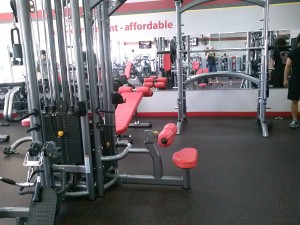 over eating, and overindulgence.
over eating, and overindulgence.
My recent outing with the Peach Pickers as an opening act on the Luke Bryan Farm Tour turned out to be a great experience and (thanks to a few forward thinking folks in Luke’s camp) a successful experiment in healthy living on the road. It turns out that several members from Luke’s band have built a daily gym run into their touring schedule, an activity that is open to the musicians and the opening bands, as well. Every day around 10:30 AM, anywhere between six and ten of us would pile into a runner van for a short ride to a local gym. Once at the gym many of us did our own thing, activities ranging from treadmill to circuit training to stretching and yoga.
Luke’s guitarist and bandleader, Michael Carter explained that “the one thing we do have out here is time” and that working out every day can be more difficult for people who work an eight hour workday with a commute. For many touring musicians, the first requirement of their work day is a sound check, usually sometime in the afternoon, and then the nightly show. Believe it or not, just lying around all day on a bus and watching TV can be tiring (not to mention boring) and this can be very draining. Not only does the morning workout speed up your metabolism and give you added energy for the day, it also temporarily removes you from “diesel city”, giving individuals a chance to have some privacy and clear the head.
Getting Creative:
Even on a tour of this level, working out at a gym can’t happen every single day, sometimes the closest gym is just too far away, a runner isn’t available at the necessary time, etc. When the gym run didn’t happen, we all got creative. On one day we all went for a run. On another day, when running wasn’t practical due to our location, we all found creative ways to get in a workout. Michael did a modified version of “Insanity” in the back of a semi trailer, a few members of Cole Swindell’s band (one of the other openers) played power frisbee, a few did some circuit training, and I did some yoga in a quiet corner of the field.
Healthy Eating:
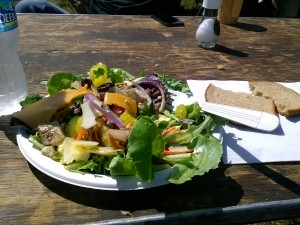 While the issue of what is, and what is not healthy food is still a mystery to many in Western culture, and it can be a touchy topic yielding much debate for some, I am going to go out on a limb here – healthy food is food that allows me to feel good after I eat it, unhealthy food is food that makes me feel crappy after I eat it! That being said, my diet typically consists of fresh fruits and vegetables, whole grains, nuts, healthy oils, and protein derived from poultry and fish (preferably raised in a healthy and sustainable environment) – and as you might guess, this kind of food isn’t always easy to find on the road. So you can imagine how pleased I was to find that the catering on this year’s Farm Tour featured a pretty happenin’ salad bar. Every day my lunch and dinner consisted of a big plate of mixed greens, carrots, mushrooms, cherry tomatoes, hard-boiled egg, grilled chicken, and topped with olive oil and balsamic vinegar. I noticed that several of the other musicians on this tour made similar meals. On days when the main entrée was chicken and/or fish, and I would have this in addition to my salad for dinner. For breakfast, I was typically having a couple of eggs, some whole wheat toast, and a bowl of fruit.
While the issue of what is, and what is not healthy food is still a mystery to many in Western culture, and it can be a touchy topic yielding much debate for some, I am going to go out on a limb here – healthy food is food that allows me to feel good after I eat it, unhealthy food is food that makes me feel crappy after I eat it! That being said, my diet typically consists of fresh fruits and vegetables, whole grains, nuts, healthy oils, and protein derived from poultry and fish (preferably raised in a healthy and sustainable environment) – and as you might guess, this kind of food isn’t always easy to find on the road. So you can imagine how pleased I was to find that the catering on this year’s Farm Tour featured a pretty happenin’ salad bar. Every day my lunch and dinner consisted of a big plate of mixed greens, carrots, mushrooms, cherry tomatoes, hard-boiled egg, grilled chicken, and topped with olive oil and balsamic vinegar. I noticed that several of the other musicians on this tour made similar meals. On days when the main entrée was chicken and/or fish, and I would have this in addition to my salad for dinner. For breakfast, I was typically having a couple of eggs, some whole wheat toast, and a bowl of fruit.
To me, healthy eating on the road is all about choices and discipline. On this tour, there were many healthy options, and there were also unhealthy options. I’ve been on other tours that didn’t have catering with this many options, in those situations I often brought more of my own food. I generally steered clear of the “after show” food, which typically consisted of pizza, fried chicken, sandwiches on white bread, etc; and chose to eat almonds, corn chips and salsa, and of course, the occasional indulgence (it’s all about balance).
Building Community:
Taking advantage of my free time, I worked out every single day on this eight-show run across the Deep South. In addition to taking care of my body and helping me feel good, working out with members of Luke’s and Cole’s bands also helped create a sense of community. The more and more I get into healthy living, the more I want to align myself with others who are on the same path, and I instantly felt some common ground with the “2013 Farm Tour Gym Crew”. It was inspiring to be on a tour that gives musicians the option to have a daily workout, and a relatively healthy meal.
Healthy living isn’t just for a few oddball touring musicians.
So what if you work a day gig and don’t have as many idle hours during your day? Funny you should ask. In recent years my life as a touring musician has greatly diminished, and much of the time I’ve been holding down a steady day gig as a painter and drywall carpenter (something I’ve done on and off since high school). This job is very physically demanding, and if I don’t take care of myself, I am susceptible to shoulder aches, back pain, tendinitis flareups, and a whole host of other problems. Working out and healthy eating combats these problems. As far as daily workouts, I find that if I don’t do something first thing in the morning I might not get in any workout on that day. Knowing this, I make it a priority to do at least 30 minutes of exercise before leaving for work in the morning. I prepare my lunch the night before, usually consisting of leftovers from a healthy dinner, almonds, fruit, green tea and water.
I look at all of this as a choice. In addition to advanced planning, healthy eating simply requires a conscious decision to buy, prepare and eat healthy foods. The same is true for exercise, as I age, things hurt more, and the recovery time from injuries is longer. Rather than looking for answers within Western medicine, I choose a steady regiment of cardio, strength, and flexibility exercises (in addition to my healthy diet). I believe there is a healthy way to prepare all your favorite foods. And I believe that each individual has to find an exercise program that is right for them.
For more information about wellness through exercise and healthy eating, please visit http://www.doitthehardway.com/
Nashville Berklee Jam with Rich Redmond – June 5, 2012
The latest Nashville Berklee Jam last Tuesday was a great success, thanks to all who attended! The weather was beautiful, so we had a very laid back talk outside on the patio at The Fillin’ Station, our usual location for this event. Rich Redmond, the guest speaker on this night, has worn a lot of hats during his 15 years in Nashville – session/touring drummer, producer, clinician, public speaker, and his hour-long talk gave all in attendance some great perspective into different ways to navigate the Nashville music industry.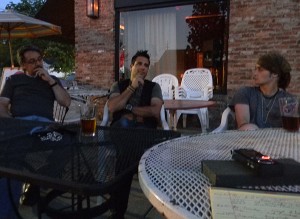
Rich spoke of the need to aggressively market yourself to find work in Nashville and how in his earliest days he obtained work by handing out demo cds of his drumming abilities to almost everyone he would meet around town. He candidly talked about those ‘lean years’, and that long before he was recording on hit records, touring the world with Jason Aldean, and producing acts like ‘Thompson Square’, he was hustling gigs on Broadway, playing in corporate party bands – whatever was necessary to insure survival.
For those who are just starting out in Nashville, he recommended that musicians “take every gig that’s offered”, as every new gig can potentially lead to new relationships and different career opportunities and that “If you give more to people then they expect, if you consistently exceed expectations, people are going to want to work with you.”
He spoke of the need to be ultra-professional by “always returning phone calls in a timely manner, always returning e-mails in a timely manner, being professional, being flexible, having the right gear to do the job and never mailing in a performance…”
Regarding the importance of reputation he said “You can have a great website, you can Tweet 1000 times a day, you can have a fantastic business card that’s got the really good paper, you know the really firm stuff that you have to pay extra for, and it’s still going to come down to word-of-mouth. In this [digital] age it’s so easy to be talked about in a positive or negative way, globally.”
During one part of the talk he mentioned a concept he refers to as “CRASH” a phrase he coined that stands for Commitment, Relationships, Attitude, Skill and Hunger – the five key ingredients he believes are necessary to succeed. He also spoke of the importance of defining your own success, a concept I talk about in my book “The Nashville Musician’s Survival Guide” (coincidentally, Rich contributed to the writing of this book).
After fielding several questions, he finished his talk and we all headed inside to make some music. Everyone who wanted to jam got a chance to sit in, and several great performances took place – ranging from classic rock covers to blues jams to originals. Rich stayed till the end making himself accessible to anyone who wanted to hang and chat, and during the middle of the jam he got behind the drum kit and played a few songs with me and several other alums. Here’s an MP3 of us playing a spirited version of the Jimi Hendrix classic, ‘Little Wing’ Little Wing Berklee Jam w Rich Redmond low. The night ended and we all headed home, but not until gathering for a group photo.
I want to thank everybody who came out and participated to make this another great event, see you at the next one! The next Nashville Berklee Jam will be held on Tuesday, July 10 – check back in a few days for info on the guest speaker for that night.
The Gig I Thought Would Never End
Have you ever played a gig that seemed to go on forever? I’m not talking about your typical three to four hour bar band performance that occasionally might drag a little in the middle, or some uninspired club gig full of “T n’ A” (tables and ashtrays). No, I’m talking about a gig that goes on for hours and hours, eight hours to be exact, by the end of which you felt like you aged 10 years. A few years back I did a few gigs like this, and lived to tell about it.
With thousands of singers and musicians trying to break into the Nashville nightclub scene and only so many potential gigs, the scene here can be quite competitive. And if you’ve been in Nashville for a while, you know all too well that these clubs are not known for their “great pay”. These two facts combined might cause some players to take on gigs that, in another part of the country, would be laughed 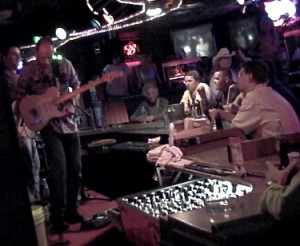 out the door.
out the door.
Don’t get me wrong; there are some club gigs around town that can be lucrative, a few even providing a guarantee of $100 or more per player. But most club gigs in Nashville are tips only, or provide a minimal base pay (usually $20-$50 per player), plus tips. So if you want to make some decent money, you really have to hustle.
Relying on tips causes many club bands to play a three to four hour shift without taking a break, and if a player needs to go to the bathroom the singer might do a few acoustic numbers to provide the band with at least one “pee break”. Relying so greatly on the tip jar for income also causes some singers and bands to exclusively cater to the tourists, choosing worn out dance floor classics like “Margaritaville”, “Sweet Home Alabama” and “Mustang Sally” to keep them happily bopping along.
Several years back I was working pretty steadily downtown, playing a lot of shifts at Tootsies, the Second Fiddle, and a few others on the strip. Around the same time there was another club just a few streets off of Broadway at which I also began performing (to save face, this club will remain anonymous, although its identity will be obvious to anyone who has ever worked this gig). For the purposes of this blog, I will refer to the club owner as “Harry” and the club as “Harry Houdini’s”.
I got to know Harry by hanging out at his club and sitting in on occasion. He liked my playing, and when the guitarist in his weekend house band quit, he offered me the spot. I was hungry for good paying work, and he offered to pay me $125 a night – straight pay with no tips. By Nashville standards, this was great pay for an in-town club gig. There was just one catch – the band was required to play from 7 PM to 3 AM. What?
“Don’t worry, I’ll give you plenty of breaks” Harry assured me. “You can even play sitting on a stool when you get tired”.
Like I said, good paying gigs are hard to find in Nashville, and at this point in time I really needed the dough. Besides, I had already experienced playing some “doubles” on Broadway (for those of you not in the know, this is two shifts back to back, with about a 30 minute break in between shows for change over). The doubles were hard work, but I had built up the necessary stamina, and the extra pay was helping. So what the hell, it can’t be much worse than a double, why not give it a shot?
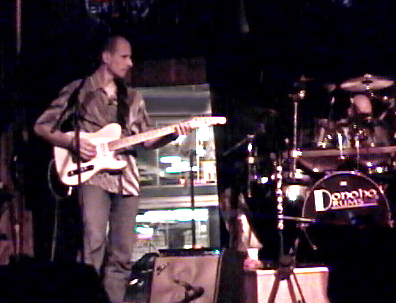 The day of my first gig at this fine establishment I arrived about 20 minutes early, loaded in my gear, and anxiously awaited downbeat. The group consisted of drums, bass, me on guitar, and a singer who also played acoustic. The song list was typical of downtown cover music – classic and new country, pop and rock, and for the first couple of hours, it seemed like just another typical bar gig in Nashville. I even got to take a short break around nine.
The day of my first gig at this fine establishment I arrived about 20 minutes early, loaded in my gear, and anxiously awaited downbeat. The group consisted of drums, bass, me on guitar, and a singer who also played acoustic. The song list was typical of downtown cover music – classic and new country, pop and rock, and for the first couple of hours, it seemed like just another typical bar gig in Nashville. I even got to take a short break around nine.
Then the dynamic of the night began to change. Harry, the club owner, was also a musician, and he came up and sang a set with the band. Some of the songs we played were the previously mentioned classics of “Margaritaville”, “Sweet Home”, and “Mustang Sally”, but we also added to the mix other worn-out wonders like “Brown Eyed Girl”, “Family Tradition”, and the often dreaded “You Never Even Called Me by My Name”.
It was a warm Friday night and the crowd, which seemed to be mainly tourists, seemed happy with what we were doing, we even got a dance floor going. The singer/owner finished his set and went back to work behind the bar, and the other singer came back to take over for a while. Another 45 minutes or so and we got our next pee break while the singer sang a couple tunes solo with his acoustic.
It was now after 11 o’clock, about the average length of a typical bar gig, and Harry again returned to the stage. To my surprise, this next set contained several of the same songs that we played in his first set, most of them being the aforementioned “classics”, a couple of which had also been covered by the other singer.
On our next pee break, sometime around 12:30 AM, I mentioned to the drummer something like “Boy he really likes those oldies. Does he always repeat those songs so much?”
“You ain’t seen nothin’ yet, we’re just getting started. Typically, he wants us to play Margaritaville, Sweet Home, Mustang Sally and Family Tradition about once an hour.” he said to my amazement. “His theory is that the tourists love these songs, and that with the high turnover, it doesn’t really matter how many times we play them.”
Ooookaaay.
Moments later I resumed my perch on the stage to continue my birds-eye view of this top 40 adventure, one that seemed to be entering some kind of classic-hit time warp. I remember looking up at the clock behind the bar a little while later and it reading something like 12:48. Except for the three or four 10 minute pee breaks, I had been playing this gig for about six hours, with two more hours to go, and it began to feel like I had been on the stage for days.
The crowd was now pretty thin, but we marched on. With Harry back on the mic, he asked the crowd “do we have any Lynyrds Skynyrd fans in the house?” With a couple of random cheers forthcoming, we launched into Sweet home Alabama again, now for the fifth time. The same thing happened with some of the other classics. I looked up at the clock a little while later and it was around 1:30. The more we kept repeating songs, the slower the clock seemed to move. At one point my mind flashed to the scene in the movie “Risky Business”, where the character played by Tom Cruise witnesses the clock going backwards right before the bell was supposed to ring.
By the end of the night, I was drenched in sweat and physically and mentally exhausted. My back was sore, my fingers shredded, and my mind numb. We had played Sweet Home Alabama, Mustang Sally, and Family Tradition seven times each throughout the night. Some of the other songs we played four to five times a piece. The funny thing was, the patrons never seemed to notice or care. Harry was right; there was a high turnover, and whatever crowd we had at any given moment seemed to enjoy the songs.
I collected my pay and went home, returning the next evening to do it all over again. As lucrative for an in-town gig as this was, I only lasted a few short weekends before moving onto something else. After a few years I was able to get over my “classic hits overdose”, but for the months following this episode, I suffered severe flashbacks every time somebody called out Sweet Home Alabama and Mustang Sally.
Need help with your vocals? Check out Vocal Coach Extraordinaire, Judy Rodman
I’ve wanted to take a step with my vocal abilities for some time now and this year seemed like a good time to do it. A few months ago I dug out an old vocal method book, “The Rock ‘n Roll Singer’s Survival Guide” by Mark Baxter, a vocal coach I had studied with in Boston in the late 90s. After digging into it for a few weeks I came across one of the books many great recommendations – the importance of taking voice lessons from a vocal coach – and that was all I needed for encouragement.
I had recently heard some great things about Nashville-based vocal coach, Judy Rodman, so I decided to give her a try. In early March I took my first lesson at her home studio, a one hour session during which we covered a lot of ground. After discussing my current musical activities and goals, she began the lesson by demonstrating some “mechanics” about the human voice, partially aided by the use of models and diagrams. Then she took me through some warm-ups, all the while listening and observing my “habits.” Next, she had me sing a song of my choosing, and this is when it became even more apparent that she had a truly unique approach to vocal training.
After strapping on my guitar, she had me sing into a mic that was plugged into a couple of floor monitors to emulate a live gig. I don’t think I sang more than a verse before she told me to stop so she could address some issues. Apparently, years of guitar playing, combined with other “intellectual pursuits” had allowed me to develop some bad posture, posture that was restricting my vocal abilities. To begin correcting this, she had me sing while standing with my head and one heal up against the wall, while allowing my shoulders and back to be loose.
She also introduced some other concepts to improve my vocal “path.” One I found particularly enlightening was to pick an object or spot on the wall and imagine that it’s a person to whom I am telling a story. Another was to pretend I’m singing to a deaf person, to cause a deeper articulation of the words and phrases. Yet still another was to raise my eyebrows when I sing, as this expands “the cave” and will allow for a more resonant sound. By the time I left the lesson I was not only inspired to go home and practice, I had made an immediate and noticeable improvement.
Since that day I’ve taken a half-hour lesson every other week and have made great strides, and I actually look forward to practicing! Like any great music teacher or coach, Judy has a gift for custom tailoring each student’s approach and practice regimen; she quickly honed in on my problems and came up with the appropriate exercises and concepts to correct them, each lesson introducing new ones. If you live in middle Tennessee (or anywhere for that matter, as Judy also gives lessons over the phone or via Skype), and are in need of some vocal coaching, I highly recommend Judy, she is truly a vocal coach extraordinaire!
Well that’s it for today; it’s time to go sing!
Hampton Inn Caryville, TN – An American History Lesson
There was one bright spot on our recent concert destination to Speedwell, TN, and that was our brief stay at the Hampton Inn in Caryville, TN. We arrived back to the hotel around 3 PM on Saturday after our tense and stressful outing in Speedwell, and had about eight hours to pass while our driver, Steve slept. About an hour north of Knoxville, and nestled in the hills of the Smoky Mountains, at first glance this hotel simply looked like just another typical Hampton Inn, not unlike many we have stayed in over the years.
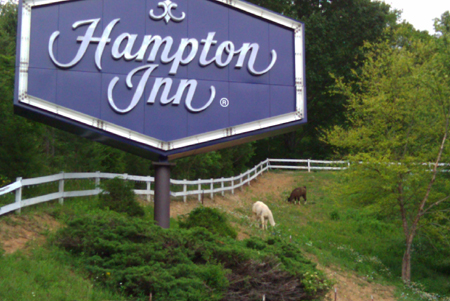 Perhaps the first giveaway that this place was a little different was the llama farm off of the back of the parking lot.
Perhaps the first giveaway that this place was a little different was the llama farm off of the back of the parking lot.
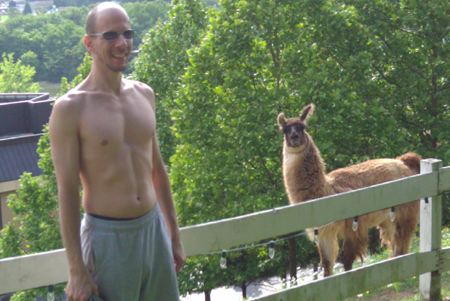 When we walked to the edge of the fence, one friendly fellow was kind enough to pose with me for a photo. Another peculiarity was a couple of old “Model-T” style cars, circa early 1900s, on display in front of the main entrance.
When we walked to the edge of the fence, one friendly fellow was kind enough to pose with me for a photo. Another peculiarity was a couple of old “Model-T” style cars, circa early 1900s, on display in front of the main entrance.
Upon entering the hotel and walking down a long hallway to our rooms we began to view some fascinating pictures and folk art lining the walls.
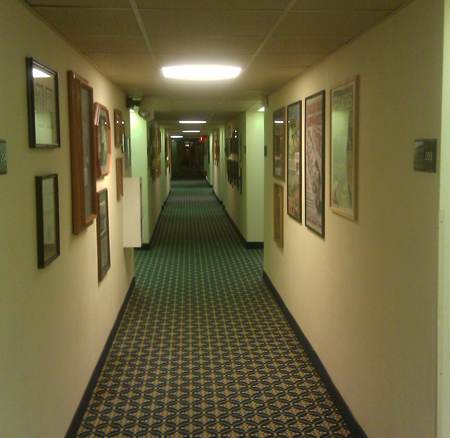 In fact there were so many photos, newspaper clippings, and other memorabilia, that Kelly and I decided to put our bags in the room and walk the halls for a bit to take a closer look.
In fact there were so many photos, newspaper clippings, and other memorabilia, that Kelly and I decided to put our bags in the room and walk the halls for a bit to take a closer look.
A common theme in many of the photographs was moonshining, and many of these photos were accompanied by descriptions.
The photos themselves told amazing stories, but upon reading the accompanying descriptions we learned that the owner of this hotel, Hack Ayers was a “third-generation moonshiner”, and his father was killed in a moonshine raid in the 1950s.
Other photos and news clippings told of a long-since forgotten era in our recent history when moonshining was an important part of the local economy of “the Mountain people.”
Other photographs captured a moment in time of a simpler, but very different America.
One of the most fascinating newspaper clippings was an original copy of a 1913 Boston Globe newspaper telling the story of the sinking of the Titanic.
There was plenty of unique folk art of lesser historical significance that still brought us back in time, like this original movie poster of the film “Casablanca.”
Even the stair wells were decked out with everything from photographs of movie stars to a John F. Kennedy campaign poster – a reprint of the Constitution to sharecroppers in the cotton fields.
Luckily, my phone takes a pretty good picture, as I had forgotten to bring our digital camera. After capturing a handful of these striking images, we decided to walk to a sitting area off of the front parking lot. We sat on an old ski lift chair that had been converted into a porch-swing and enjoyed a spectacular view of the surrounding mountains, and the lake below.
On our way back, we stopped by the front desk and I asked the receptionist about the history of all this décor. She informed me that “The owner likes to keep everything,” and that he owns another motel which is similarly decked out.
“Do people come here specifically to see all of this, or is it kind of an added bonus?” I asked
“I think it’s kind of an added bonus, but when people come back for the second time, they make it a point to see anything they missed the first time.” she responded.
She also told me that all these photographs and newspaper prints were originals. I thanked her for her hospitality and headed back to the bus, as it was just about time for us to be heading to Florida. This quaint, little gem of a hotel was definitely a bright spot on this day. The rooms were clean and comfortable, the staff was friendly and helpful, and the experience was unlike that of any other hotel I had ever stayed at. Luckily for us, this unsuspecting place is owned by a man who takes great pride in preserving American history and culture and, although I never met him, his passion for storytelling is evident by the astounding display he has presented.
Hotel room – $89 plus tax
Dinner at Waffle House – $7.63
American history lesson – priceless
“We’re getting out of here before the shooting starts!” – Country Music Festival Runs Amock
Our concert last Saturday in Speedwell, Tennessee was a wash, and not because of the rain. We arrived on site to this would-be country Woodstock a little after noon, and from the moment I stepped off the bus I knew something wasn’t quite right. You could just sense and feel the tension in the air.
Everything was in place for this mega-country bash – a great lineup featuring Rhett Akins, Jimmie Van Zant, Confederate Railroad,Bush Hawg, Matt Stillwell, and several others; a great concert stage and production; vendors; campsites – yes, everything was in place, except for the people. Somehow, despite considerable advertising, there were only 100 or so folks scattered across the giant field in front of the stage on this second day of the festival.
At this point we still remained optimistic as there have been plenty of shows that started out this way and still turned out okay. But our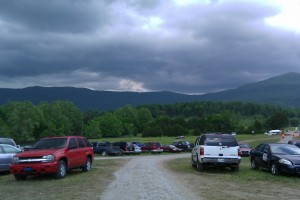 optimism would begin to fade quickly. As I began walking around looking for the promoter’s office, I started overhearing conversations that the festival was falling apart. Somebody said that the promoter was running out of money and that “the beer truck and the Porta Potty Company were pulling out.” Obviously, this wasn’t very encouraging news.
optimism would begin to fade quickly. As I began walking around looking for the promoter’s office, I started overhearing conversations that the festival was falling apart. Somebody said that the promoter was running out of money and that “the beer truck and the Porta Potty Company were pulling out.” Obviously, this wasn’t very encouraging news.
A few minutes later I found the promoter’s office and was greeted by the contact with whom I had advanced the show. When I asked him how it was going his reply was honest, but grim.
“Not good at all. The promoter is out of money and I’m not sure how this will all go down.”
“I suppose this means we won’t be able to get our bus stock?” I replied, half jokingly.
He responded, “That was one of the first red flags. When I told him I needed $300 to get bus stock for the different bands, he said he didn’t have it.”
“Ookaaay. I guess I should talk to him so we can figure out what we’re doing. ” I replied, realizing that if a three day festival was broke at noon on Saturday, and already losing their beer truck, that things could get ugly.
I walked into the next room to speak to the promoter, and saw that he was in a meeting with a couple of other event coordinators and three or four state police. Realizing this was not a good moment to approach him, I returned to the bus to tell Rhett and the gang of the situation. No sooner had I opened the bus door when a tall fellow wearing an orange “security shirt,” and sporting some really bad teeth, poked his head in and yelled into the front lounge where Rhett was sitting.
“Is that him, is that Rhett Atkins?” he yelled, incorrectly pronouncing Rhett’s last name.
“No, I’m Ricky Nelson.” replied Rhett playfully.
The fellows reply was astonishing, “You ain’t nothin’ to me, you’re just another feather in my bird!”
Quickly ushering him out the door, I assumed he was just really stupid and socially inept, or that maybe perhaps he was a meth-head.
A few minutes later I walked back to the promoter’s office to find out about getting some food. I asked if we could get some meal tickets for catering and if we could at least get a case of water and a case of beer. I was presented with meal tickets which were good for some “ham sandwiches” and chips, and I was also presented with an interesting box of bus stock consisting of:
1 case of spring water
1 open case of Bud Light (with about 8 beers in it)
1 jar of peanut butter
1 bag of corn chips
1 open bag of potato chips (about half full)
“Thanks, I guess somebody was already hungry.” I said, amazed that we got anything at all.
A little while later I was able to finally speak to the promoter who informed me that it was our option to play, and that he might be able to pay us “some money” but that it was unlikely he would be able to pay us our entire fee, and that this would be the case for the other bands as well. I told him I would check with the boss and get back to him.
After relaying all this to Rhett, he decided that in spite of not getting paid that we might as well play anyway, as we were already there. On the way back to the promoter’s office to relay this message some other folks who were hanging around backstage told me that they had heard the Porta Potties would be pulled out by seven o’clock, at which point the police or Board of Health would shut down the festival. When I asked one of the state troopers if he had heard anything like this, his reply was “yes, I have heard those rumors too, but I can’t confirm anything. I can tell you that we are pulling out our extraction team and that the remaining officers will be stationed on the perimeter.” I wasn’t entirely sure of this significance, but it sure didn’t sound good.
As I approached the promoter’s office, I could hear a loud argument. In front of the main entrance stood a big, tall state trooper, his arms folded in front in an intimidating power stance. As I got closer I heard several event workers demanding to see the promoter about their pay, as they had apparently heard rumors that they were going to get stiffed.
“I need to see him now!” demanded an angry worker.
“I’m sorry sir, nobody can see him right now.” the trooper stated firmly. After another minute of yelling and arguing by the crowd of 8 or so, the trooper restated his position – “Nobody is going to see him right now, I’m just doing my job and trying to make sure that nobody gets hurt or shot!”
Over my seven years of working as a road manager, this was the first time I had ever heard or seen anything quite like this, and the angry mob-like scene was enough to send me scurrying back to the bus. Along the way back to the bus a drenching rain set in, and we overheard more angry workers with comments about people getting shot. This would-be country Woodstock was beginning to look more like Altamont – only without the masses. Despite Rhett’s willingness to play for free, in light of the most recent developments, we decided it was best to head on down the road. I’ll have to check, but I’m pretty sure that getting shot is not one of the requirements in our rider.
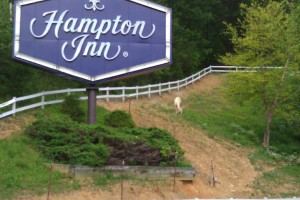 After our hasty retreat we arrived safely back to our hotel, the Hampton Inn in Carryville, TN. A little while later, Nick, our drummer, received a text from one of his friends who was playing in another band at the festival – something to the effect of “We’re getting out of here before the shooting starts!”
After our hasty retreat we arrived safely back to our hotel, the Hampton Inn in Carryville, TN. A little while later, Nick, our drummer, received a text from one of his friends who was playing in another band at the festival – something to the effect of “We’re getting out of here before the shooting starts!”
From what we could tell, there were no riots and nobody got shot at the festival. But still, the whole situation was quite unnerving and unfortunate. Obviously, several other bands besides us were leaving town without their pay, as were many vendors and event workers. The festival goers who were in attendance were ultimately shortchanged. And the promoter obviously lost his shirt, not to mention credibility.
On a brighter note, we did have a great time hanging out at the Hampton Inn and the guys did enjoy a fabulous dinner at the local Waffle House!
Apopka, Florida here we come!
The Hampton Inn in Caryville, TN, was the most unique Hampton Inn we have ever visited – the walls of the lobby, hallways, and stairwells covered with hundreds of old photographs, newspaper clippings, and folk art and providing a retrospective of the old South. It even had an adjacent llama farm. I’m going to try to write a blog over the next couple of days as there’s not enough space to do it justice here.
Music Careers in Nashville – To Be or Not to Be
So far, the feedback I have received on my book has been very positive, and I’m thrilled about that. Several people who purchased the book have e-mailed me and share their thoughts; I’ve even had some European interest. However, a Craigslist response last week to one of my recent blogs brought up one issue that I must address.
The response was to my last blog “The Benefits of Having, and Being a Mentor” and, while it completely missed my point about mentoring, the writer stated views that “the music business is the biggest waste of human activity” and something else to the effect of ‘why should young people have to spend years playing in bars to get good or make connections?’ This person was obviously taking a shot at me and my book, while it was clear from the rhetoric that he or she formed opinions based only on reading a couple of my blogs, without actually reading the book.
So for the record, here are some of my thoughts regarding music careers in Nashville (or anywhere for that matter).
When I started writing this book, my intention was to present a document that would help “fill in the blanks” for both newcomers to Nashville and people who are considering relocating here. I wanted it to be full of useful information that would simply help musicians’ gain perspective about what’s here and I believe the finished book does just that. But it’s definitely not a “get rich quick” angle. I don’t make any promises; I’ve done my best to simply present information about the Nashville music industry from a journalistic standpoint.
In fact, nowhere in the book do I suggest that moving to, or embarking on a music career in Nashville (or anywhere else) is a good idea. For that matter, nowhere in the book do I state that it is a bad idea. People have been selling the farm and moving to Nashville to fulfill their musical dreams for decades. The way I see it, people are going to chase their dreams no matter what I write in a book or a blog, and the last thing I’m going to do is try to talk someone out of their dreams.
Do I think that the music business is a waste of human activity? It might be for some, but those folks will never know if it is until they try. And once they have it in their head that they think they can succeed, no one is going to be able to “talk them down from the ledge.”
In the foreword to my book I write “many find out that the music industry of Nashville is not what they thought and are unable to achieve their dreams and aspirations, often resulting in a premature and hasty exit.” This is one of the first lines in the book and reading it today makes me think of something one of my professors at Berklee once told me. It was my first day of “Harmony” class way back in 1988 and the professor began the class by saying “80% of you will not survive your first year at Berklee.” He wasn’t trying to paint a picture of gloom and doom, he was simply trying to instill that what we had chosen to pursue is extremely challenging, perhaps much harder than we were prepared for, and that it was simply a statistical fact that more would fail than would succeed.
This sums up the music business perfectly. It is extremely challenging, much more difficult than you could ever prepare for, and only a small number of those who try will succeed. But this doesn’t mean that it is a waste of human activity, or that some people shouldn’t try. Like I said, it’s not my place to talk people out of their dreams. My whole angle is, if you’re going to try to build a successful career in the music business, understand how hard it is and prepare yourself for the road ahead. Arm yourself with as much knowledge as you can. Practice your instrument and become a great player and play music with others often. Learn how to enjoy playing nightclub gigs, for these are the majority of gigs most musicians will play. Read as many books, magazines, and articles about music, business, and life as you can. Talk to others in the business to gain perspective. Be a good person and contribute to the community in which you live. Work hard, bring something to the table, and don’t be afraid to put your chips down. And HAVE A BACKUP PLAN – be good at doing something else too!
The music business is an extremely competitive and difficult endeavor to succeed in, and making it work in Nashville is just as hard, if not harder than it is anywhere else. I don’t have all of the answers, I just know what worked for me and am sharing that with the hopes it might help a few others along the way.
So what are you waiting for? Buy my book today 😉
The Benefits of Having, and Being a Mentor
“Teaching is the profession that teaches all the other professions.” – Author Unknown
When I first arrived in Nashville in 2002, I realized that to succeed in this massive and confusing music industry I would be faced with great challenges in the months and years ahead. I was fortunate, however, as I had a good friend in the industry – one who had already paid his dues and found some success here, and he helped to illuminate a path that worked for me. He was my Nashville mentor.
“You may be only one person in this world, but to one person at one time, you are the world.” – Anonymous
He didn’t consider himself a Mentor, or teacher, he was simply a good friend helping another friend. But I was clueless about how this music industry worked, so to me he was a lifeline of information and inspiration. He knew I needed this guidance and direction, and for whatever reason, he decided to invest in my future. He went out of his way to help me on many occasions – advice-filled phone calls, one-on-one guitar lessons, trips to the music store to check out new gear, introductions to friends in the business, he even gave me an electric guitar.
“The dream begins with a teacher who believes in you, who tugs and pushes and leads you to the next plateau, sometimes poking you with a sharp stick called ‘truth.’ “- Dan Rather
What he offered that probably helped me the most was insight and advice. He had already been working in this town for 10 years at this point in time, so he had a great perspective of a much larger view of the music community than one could see quickly. His accumulated wisdom also allowed him to see my strengths and weaknesses. After one embarrassing moment in a Nashville nightclub, one where I sat in and played a style in which I was in over my head, he was compassionate, but brutally honest.
“You might want to stay away from downtown for a little while; you need some more wood shedding.”
As much as I didn’t want to hear this, I knew it was the truth and I knew that there was more work to be done. Over time, I improved my weaknesses, largely thanks to his advice and suggestions, and returned to the in-town nightclub scene better prepared. I eventually wound up playing as a sideman on tours, recording on songwriter demos, etc. and I have been fortunate to wind up in the category of musicians who find a way to survive Nashville. If it weren’t for the great help I was given early on by this generous human being, who knows how it all would have turned out.
“A teacher affects eternity; he can never tell where his influence stops.” – Henry Brooks Adams
Years before I moved to Nashville I was a guitar teacher in New England. I taught 30 to 40 students privately per week. I did my best to help all of them, but some were more receptive than others, and for many my teaching went beyond the half-hour lesson – helping them pick out instruments, inviting them to sit in with my band, phone conversations – I gave more than I was expected to because it felt like the right thing to do.
Now, 10 years later, I have learned that one of these students is a guitar teacher himself and plays in a successful nightclub band as well. Another one of these students that received some extra “mentoring” went on to graduate from the Berklee College of Music and is earning his living as a touring musician. And still another former student, one who earns his living in the corporate world, continues to enjoy the healing power of music in his private life.
“There are two way to live your life. One as though nothing is a miracle, the other as though everything is a miracle.” – Albert Einstein
I too believe that life is a miracle and shouldn’t be taken for granted. Long before I had my Nashville mentoring, there were several other “mentor-like” figures in my life. These people acted in a selfless way, reserving judgment, and accepting me as I was, while doing many great things to help me become a better person. My wife, Kelly is one of these great people. To this day, she continues to help me shape my life in a way that makes me better, while still accepting me for who I am.
At this point of my life I am glad to be in a position where I can help some others along the way. For many, the Nashville dream is a tough row to hoe, and the book I just wrote is designed to help some of these struggling folks – kind of my way of paying it forward. And when someone asks me for advice I always do my best to offer insight that will really help that person.
So I urge you to take a minute and ask yourself a couple of questions – Who in your life is looking to you for answers? How can you help them on their path? If you put your best foot forward and help a few folks along the way, if nothing else, you’ll sleep better at night knowing that you did your small part to make the world a better place.
“Together we can change the world, one good deed at a time.” – Pay it Forwarders everywhere
As some of you may know, and for those of you who don’t know, I have just released my book “The Nashville Musician’s Survival Guide.” This street-level perspective of the music-related jobs in the Nashville music industry is now available in print and eBook versions. To purchase your own copy, follow this link.

